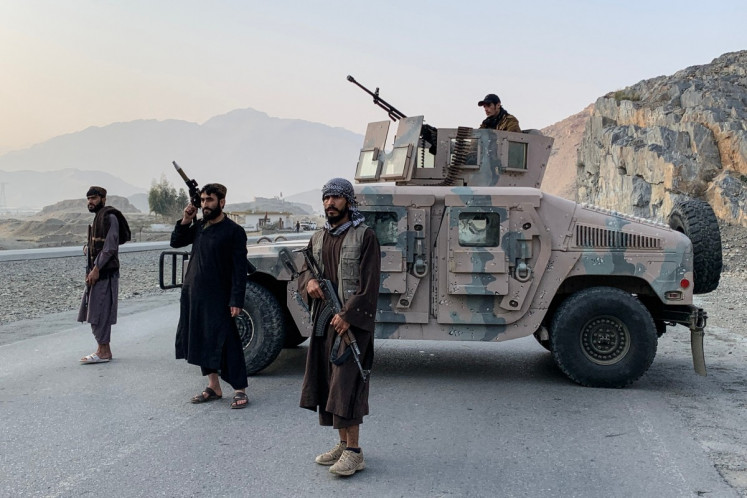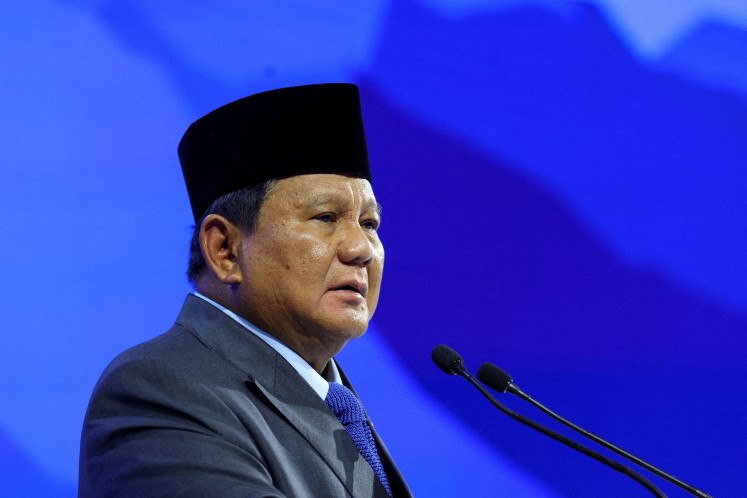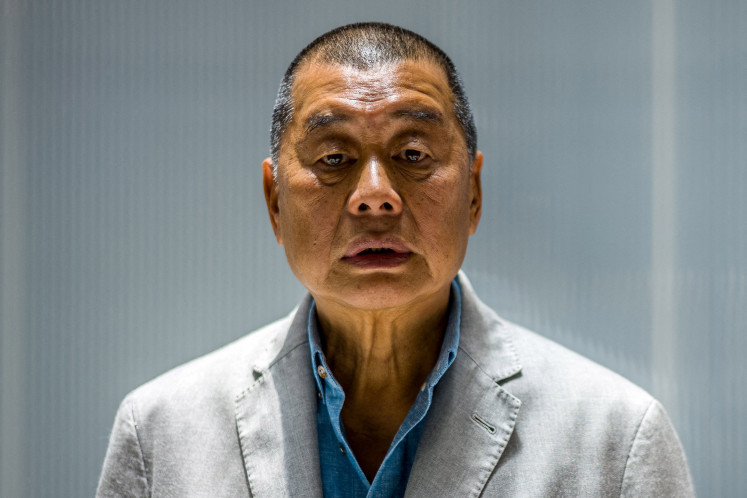Popular Reads
Top Results
Can't find what you're looking for?
View all search resultsPopular Reads
Top Results
Can't find what you're looking for?
View all search resultsWHO says nasal vaccines could help control Covid
The WHO welcomed the new front in the fight against the virus -- but also said it wanted to see the data behind the vaccines, to assess whether to aprove them.
Change text size
Gift Premium Articles
to Anyone
N
asal COVID-19 vaccines could help to bring the COVID-19 pandemic under control, the World Health Organization said Wednesday after homegrown products were approved in India and China.
The WHO welcomed the new front in the fight against the virus -- but also said it wanted to see the data behind the vaccines, to assess whether to aprove them.
China on Sunday launched the world's first inhalable Covid vaccine, Convidecia Air, which is made by CanSino Biologics and administered through a nebuliser.
And India approved a nasally-administered COVID-19 vaccine for emergency use on Tuesday, developed by Bharat Biotech.
WHO emergencies director Mike Ryan said nasal vaccines generated immune response in the respiratory mucosa in the lungs.
"You're generating the first line of defence at where the virus enters and causes a lot of damage," he explained.
In doing so, nasal vaccines could potentially prevent a person from being infected and passing the virus on.
Ryan cited how nasal and injectable vaccines are used in combination to combat diseases such as polio, giving full protection to the internal systems.
That opportunity to reduce both the severity of infection and onward transmission "may offer us a much stronger prospect of control of Covid in the long run", he told a press conference.
He encouraged innovation that would develop a second and third generation of vaccines "that we may need ultimately to deal with the end of Covid and to deal with future respiratory virus threats".
Maria Van Kerkhove, the WHO's technical lead on COVID-19, welcomed the news.
"We look forward to seeing the data to see how this could be incorporated into the response for Covid-19," she said.
CanSino and Bharat Biotech both have WHO-approved injectable COVID-19 vaccines.
Mariangela Simao, the WHO's access to vaccines chief, confirmed neither manufacturer had yet sought the WHO's stamp of approval for the new products.
Other manufacturers are also working on nasal vaccines, she added.
Death every 44 seconds
WHO chief Tedros Adhanom Ghebreyesus said the continuing global decline in reported Covid cases and deaths was encouraging, but said it was "dangerous" to assume those trends would persist.
"Last week, one person died with COVID-19 every 44 seconds. Most of those deaths are avoidable," he said.
"You might be tired of hearing me say the pandemic is not over. But I will keep saying it until it is."
Van Kerkhove said it could not yet be predicted that the SARS-CoV-2 virus behind COVID-19 disease would settle down into a seasonal pattern.
The Omicron variant's BA.5 subvariant has become globally dominant, but dozens of subvariants are circulating.










